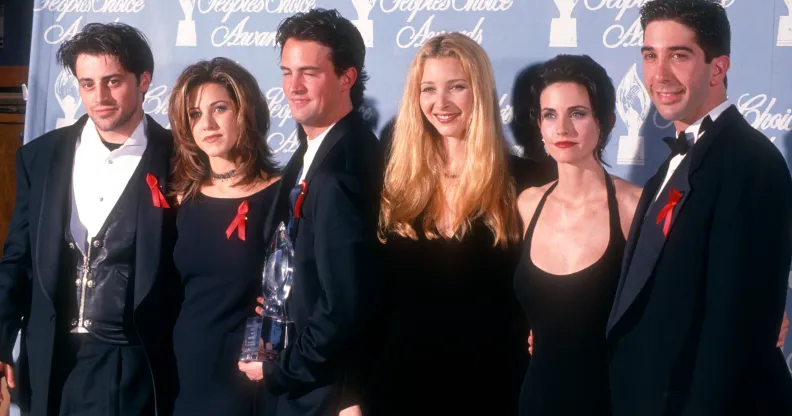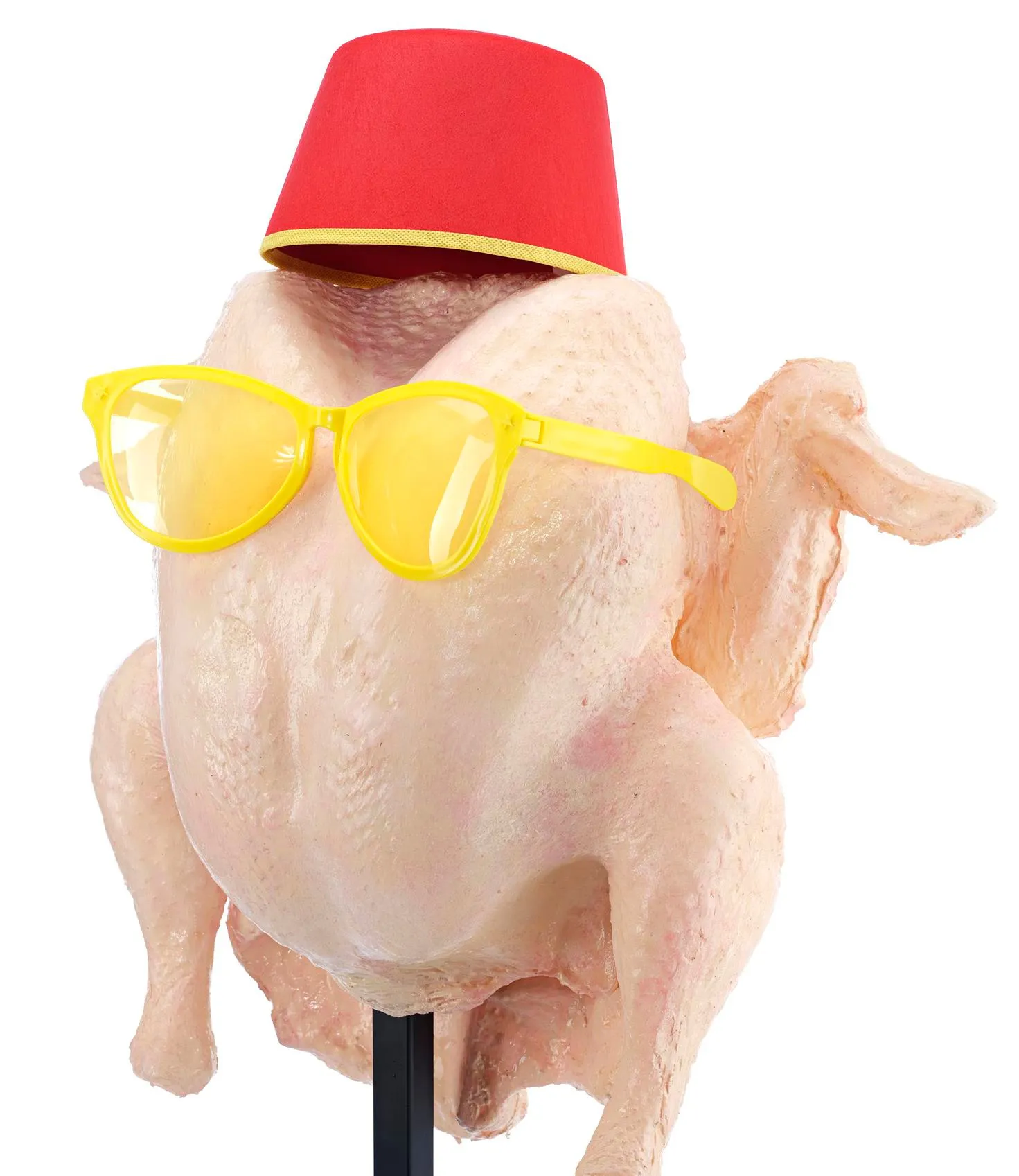Finally, millennial sitcom Friends is doing something good for the queer community

Matt LeBlanc, Jennifer Aniston, Matthew Perry, Lisa Kudrow, Courtney Cox and David Schwimmer of the TV show Friend’s attend the 21st Annual People’s Choice Awards on March 5, 1995. (Ron Davis/Getty)
After controversies over some of its less than positive LGBT+ content, a Friends auction selling props and costumes will now raise money for a LGBT+ cause.
The 90s sitcom’s depictions of gender and sexuality have unfortunately not aged well, drawing recent criticism.
But now Warner Bros will “celebrate 25 years of laughs with an exclusive auction of props, costumes, scripts, a canoe, some turkeys, and more from the production of Friends” to raise money for The Trevor Project, a US organisation that provides crisis intervention and suicide prevention services to young LGBT+ people.
From December 3 to 17, more than 80 items will be up for auction through the online auction company Prop Store including a reproduction of the orange couch from Central Perk, a box of Smelly Cat cat litter and a model turkey wearing sunglasses and a fez.

Friends fans can bid on a turkey wearing sunglasses and a fez. (Warner Bros)
Also up for grabs will be a pack of three Milkmaster 2000 spouts, Joey Tribbiani’s penguin soft toy Hugsy and Rachel Green’s blouse and trousers that she wore in the elevator with Ralph Lauren.
According to Variety, the item predicted to sell for the most money is a reproduction of Ross Geller’s holiday armadillo costume, with an expected sale price of $10,000 to $15,000.
Fans can sign up for the auction online, and will automatically be entered into a sweepstakes to win a Friends production script.
A selection of the auction items will also be available to view at a Friends pop-up store in Boston from November 21.
Friends has a problematic history with LGBT+ representation.
While the sitcom is a cult classic, 25 years after its debut some of the storylines in Friends show seriously problematic attitudes to gender and sexual orientation.
Series creator Marta Kauffman recently confirmed that Chandler Bing’s parent, Helena Handbasket played by Kathleen Turner, was a trans woman, despite the show repeatedly referring to her as “Chandler’s dad”.
The character is confusing to watch, as it is unclear whether she is trans or a drag queen, with the show conflating the two as the same thing. Chandler also makes multiple homophobic jokes at the expense of his parent, and seems to have a fear of being gay himself.
Earlier this month, Turner said that if she were offered her three-episode role now, she would turn it down.
Turner said: “Of course I wouldn’t do it now because there would be real people able to do it.”
Kauffman recently admitted: “I think we didn’t have the knowledge about transgender people back then, so I’m not sure if we used the appropriate terms.”
The fragile masculinity shown by the men in the sitcom is constant, and any time a male character takes part in stereotypically feminine activities – for example when Joey takes up flower arranging after listening to a hypnosis tape – they are accused of being a “woman” or being “gay”.
When Rachel hires a male nanny, Ross comments that he must be gay and eventually fires him. Ross’s obsession with traditional male stereotypes even extends to him being upset when his son, Ben, wants to play with a Barbie.
A lesbian wedding on TV in 1996 was admittedly groundbreaking, but Carol and Susan’s relationship was often played for laughs, with the phrase “lesbian life partner” commonly being enough for a punchline.
Jessica Hecht, who played Susan, previously said that she was cast as Carol’s partner because she “didn’t look like a lesbian”.

